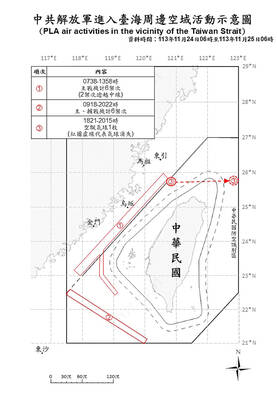The key to countering Chinese behemoths poaching skilled Taiwanese workers lies in Taiwanese employers’ attitude on curbing the brain drain, Premier William Lai (賴清德) said yesterday, calling on the nation’s top-performing enterprises to make use of government policies to respond to the issue.
Lai made the remarks at a question-and-answer session at the Legislative Yuan with Democratic Progressive Party (DPP) Legislator Julian Kuo (郭正亮), who said the government has failed to propose policies to prevent large Chinese companies from poaching skilled Taiwanese workers.
For example, Tsinghua Unigroup has reportedly wooed engineers from Taiwan Semiconductor Manufacturing Co (TSMC) with a yearly salary of between NT$6 million and NT$7.5 million (US$205,691 and US$257,113), which is about five times what TSMC pays, Kuo said.
Low pay is the main reason behind the nation’s exodus of talent, especially in the high-tech industry, Kuo said.
Citing a report published by Hong Kong-based recruitment firm Morgan Phillips, Kuo said the average yearly salary of workers in Taiwan’s IT sector in 2015 lagged behind that of workers in the Philippines, India, China and Hong Kong.
According to an Organisation for Economic Co-operation and Development report, 61.1 percent of the nation’s skilled workers chose to work overseas in 2013, of which about 80 percent of those who worked in high-tech industries went to China, Kuo said.
In today’s knowledge-based economy, skilled workers are the driving force behind industries, he added.
The government has introduced measures to slow the exodus of workers, including in January passing tax reforms that lowered the highest individual income tax rate from 45 percent to 40 percent, and promulgating the Act for Industrial Innovation (產業創新條例), which grants tax deductions to angel investors and innovative firms that contribute capital to innovative sectors, as well as lifting a regulation that stipulated shares linked to technology transfers must be taxed within five years, Lai said.
The Executive Yuan has approved draft amendments to the Company Act (公司法) that are also expected to help local firms retain workers, Lai said.
However, the key to motivating skilled workers to stay in Taiwan lies with local companies, as government policies are meant to function as general guidelines and cannot make up for the difference in salaries offered to workers, the premier said.
With the legal tools having been put in place, “companies need to cooperate with the government so that they can make talent stay,” he said.
He called on local firms to proactively grant their valuable workers pay rises using existing government measures.
Citing TSMC as an example, Lai said the company’s annual expenditure amounts to several hundred billion New Taiwan dollars, and if it is willing to spend just a small proportion of that on employee pay, it could declare the extra spending as a tax-deductible expenditure without denting its finances.
Had TSMC taken NT$100 million from its annual expenditure and given former research and development director Liang Mong-song (梁孟松) and former chief operating officer Chiang Shang-yi (蔣尚義) a pay raise of NT$50 million each, it would likely have been able to keep them, Lai said.
Another legal way for companies to retain workers is to set up a private equity fund and distribute the resultant shares to its employees, which is also tax-deductible, he said.

Taiwan’s passport ranked 34th in the world, with access to 141 visa-free destinations, according to the latest update to the Henley Passport Index released today. The index put together by Henley & Partners ranks 199 passports globally based on the number of destinations holders can access without a visa out of 227, and is updated monthly. The 141 visa-free destinations for Taiwanese passport holders are a slight decrease from last year, when holders had access to 145 destinations. Botswana and Columbia are among the countries that have recently ended visa-free status for Taiwanese after “bowing to pressure from the Chinese government,” the Ministry

Theaters and institutions in Taiwan have received 28 threatening e-mails, including bomb threats, since a documentary critical of China began being screened across the nation last month, the National Security Bureau said yesterday. The actions are part of China’s attempts to undermine Taiwan’s sovereignty, it said. State Organs (國有器官) documents allegations that Chinese government officials engage in organ harvesting and other illegal activities. From last month to Friday last week, 28 incidents have been reported of theaters or institutions receiving threats, including bomb and shooting threats, if they did not stop showing the documentary, the bureau said. Although the threats were not carried out,

HEALTHCARE: Following a 2022 Constitutional Court ruling, Taiwanese traveling overseas for six months would no longer be able to suspend their insurance Measures allowing people to suspend National Health Insurance (NHI) services if they plan to leave the country for six months would be abolished starting Dec. 23, NHIA Director-General Shih Chung-liang (石崇良) said yesterday. The decision followed the Constitutional Court’s ruling in 2022 that the regulation was unconstitutional and that it would invalidate the regulation automatically unless the NHIA amended it to conform with the Constitution. The agency would amend the regulations to remove the articles and sections that allow the suspension of NHI services, and also introduce provisional clauses for those who suspended their NHI services before Dec. 23, Shih said. According to

‘GRAY ZONE’ TACTICS: China continues to build up its military capacity while regularly deploying jets and warships around Taiwan, with the latest balloon spotted on Sunday The US is drawing up contingency plans for military deployments in Japan and the Philippines in case of a Taiwan emergency, Japan’s Kyodo news agency reported. They would be incorporated in a first joint operation plan to be formulated in December, Kyodo reported late on Sunday, citing sources familiar with Japan-US relations. A US Marine Corps regiment that possesses High Mobility Artillery Rocket Systems — a light multiple rocket launcher — would be deployed along the Nansei Island chain stretching from Kyushu to Yonaguni near Taiwan, Kyodo said. According to US military guidelines for dispatching marines in small formations to several locations,